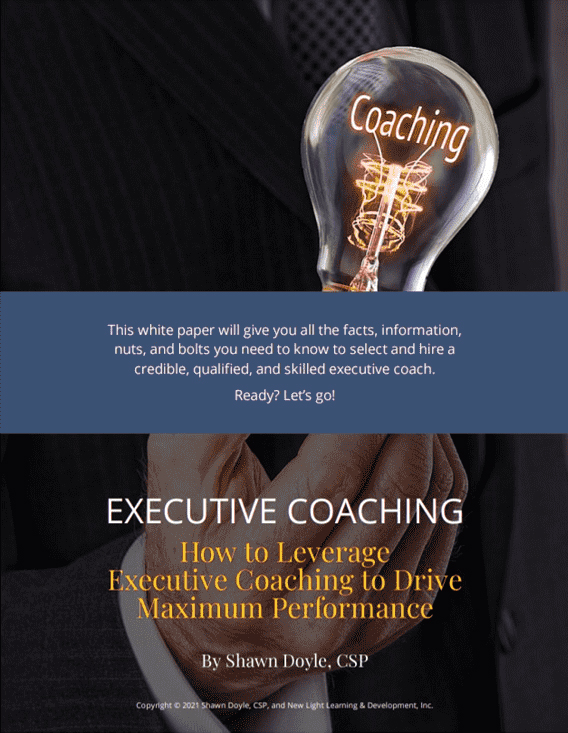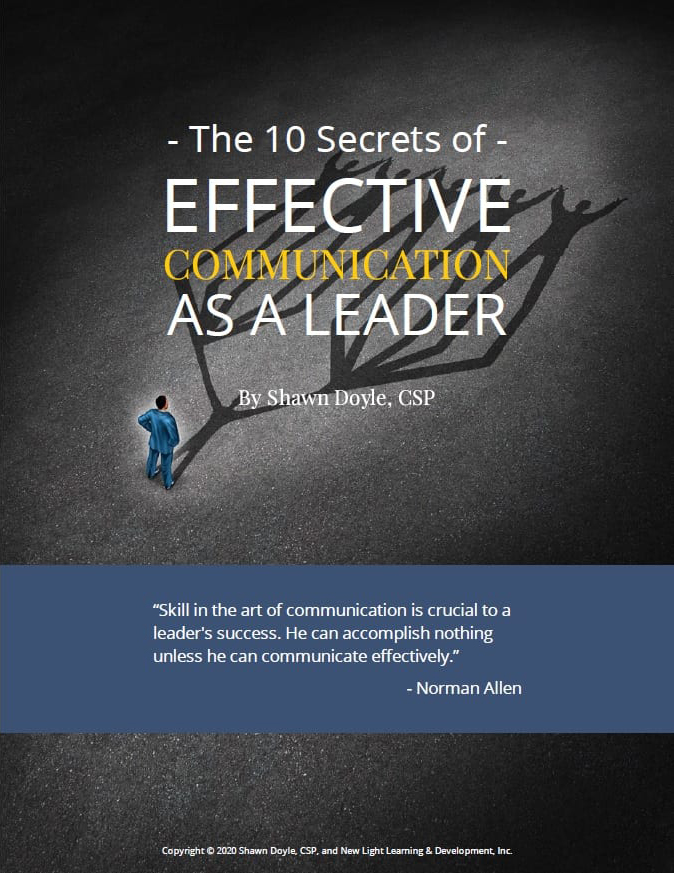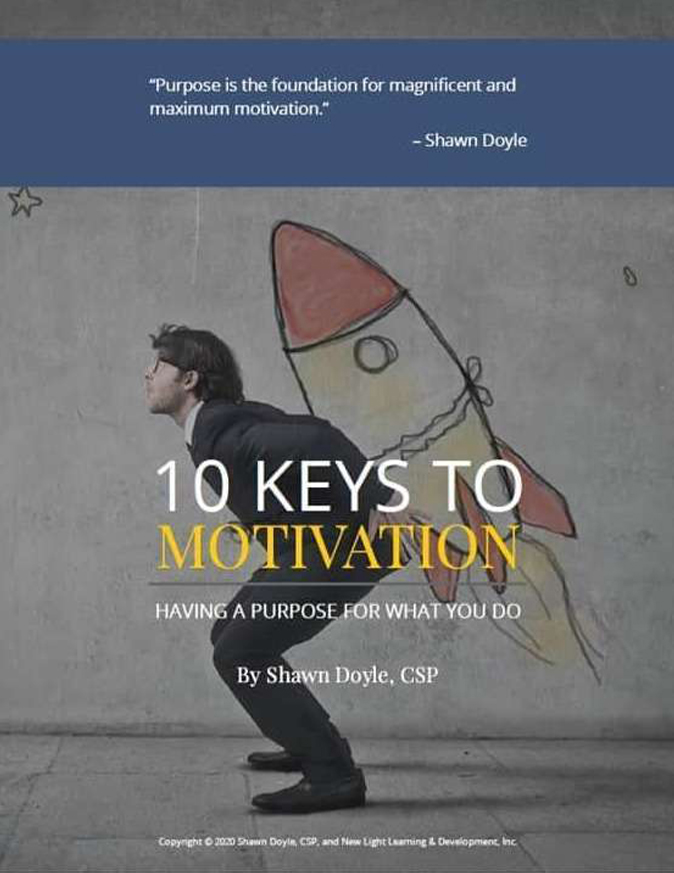Blog

5 Benefits of Executive Business Coaching and Mentoring Services
It wasn’t too long ago that executive business coaching and mentoring services were looked upon with a bit of skepticism. After all, if you were talented enough to become a business executive, why would you need coaching, much less mentoring services? The short answer? Because CEOs, vice presidents, business leaders, and other executives discovered that coaching and mentoring works and are indispensable services that enable them to take their talents even higher.
Executive business coaching and mentoring work so well that U.S. companies invest approximately $14.2 billion dollars in these services each year, according to IBIS World. What’s more, the industry has been growing at a 2.8% annual clip since 2017.
Need some proof for the value of executive business coaching and mentoring services? Not too long ago, a Fortune 500 company wanted proof, too, so it hired Metrix Global to determine the return on investment of executive coaching. Metrix Global’s study found that 77% of respondents indicated that coaching had a significant impact on at least one of nine business measures. In addition, Metric Global uncovered that overall productivity and employee satisfaction were the most positively impacted areas, which, in turn, had an impact on customer satisfaction, employee engagement, quality, annualized financial results, and more. In all, the study concluded that executive business coaching and mentoring services produced a 788% return on investment.
Surveys indicate that most of the biggest companies now use coaches, but exactly what makes executive business coaching and mentoring services so attractive to business leaders? In a survey of coaches employed by Korn Ferry, an executive search and advisory firm, self-awareness was the primary reason an executive engaged a coach, with interpersonal relationships, listening skills, and empathy not far behind.
What do these coaching categories have in common? They are part of the makeup of emotional intelligence (EQ), which is defined as “the ability to perceive, interpret, demonstrate, control, evaluate, and use emotions to communicate with and relate to others effectively and constructively,” according to Verywell Mind. In fact, some experts suggest that emotional intelligence is more important than IQ for success in life.
Here, then, are five ways executive business coaching and mentoring services benefit you as a leader:
- Greater self-awareness
- Heightened self-regulation
- Higher levels of empathy
- Improved social skills
- Higher levels of motivation
1. Greater Self-Awareness
The single-most important capability of successful leaders is self-awareness, according to the authors of “How to Become a Better Leader,” which was published in the MIT Sloan Management Review. Successful leaders are acutely aware of their natural tendencies and use this awareness to boost those tendencies or compensate for them.
What’s more, that self-awareness has a direct impact on companies’ bottom lines. In a Korn/Ferry International study of the stock performance of 486 publicly traded companies, it was reported that companies with strong financial performances tend to have leaders with higher levels of self-awareness than poorly performing companies.
Executives who take advantage of business coaching and mentoring services learn how to focus on themselves and better understand how their actions, thoughts, or emotions align or don’t align with their internal standards. Executives who are highly self-aware can objectively evaluate themselves, manage their emotions, align their behavior with their values, and understand correctly how others perceive them. In short, highly self-aware executives can interpret their actions, feelings, and thoughts objectively.
2. Heightened Self-Regulation
Self-awareness and self-regulation go hand in hand and are important components of emotional intelligence. Self-regulation is about how you manage your emotions, impulses, and behaviors. To have strong self-regulation skills require you to be highly self-aware; if you can recognize what you’re feeling and why, then you can respond appropriately.
“In my experience, I’ve never seen the tendency toward radical outbursts to surface as an indicator of strong leadership,” writes Daniel Goleman, the psychologist who popularized emotional intelligence, on his website.
Executives have bad days for myriad reasons – an important project just crashed, you’re not agreeing completely with a colleague, an important client just hung up on you, a key member of your team just resigned, or any one of a thousand issues we could dream up. It’s how we manage ourselves during the challenging times that can make or break a leader’s reputation. Slamming doors, screaming at staff, and making threats don’t serve any useful purpose; allowing emotions and impulses to take over is what separates the weak from the strong.
Executive business coaching and mentoring services enable leaders to improve their self-regulation skills by controlling their emotions and responses to situations and other people. Executives learn how to prevent angry outbursts or snap judgments by looking at the whole picture reasonably and putting the situation in perspective.
Self-regulation is not limited to uncomfortable emotions, either. As your coach moves you along the path of greater self-regulation, you will notice increased self-management in your personal life, too.
3. Higher Levels of Empathy
Empathy focuses on understanding and connecting with others. Empathy is different from sympathy, which is when you feel bad for someone else who is experiencing a difficult situation. Empathy allows you to understand what another person is going through and connect with them on a deeper level.
Empathetic leaders can see the world from their employees’ perspectives and make decisions that consider their needs and feelings. This type of leadership is vital because it can help build trust, foster communication, and motivate employees.
That’s not all. Empathy can also contribute to positive business outcomes. Just consider this study of 889 employees by Catalyst, which found empathy to have the following significant constructive effects:
- 61% of employees with empathetic leaders reported they were able to be innovative, compared to 13% of employees with less empathetic leaders.
- 76% of employees with empathetic leaders reported they were engaged, compared to only 32% of employees with less empathetic leaders.
- 57% of white women and 62% of women of color said they were unlikely to leave their companies when they felt their life circumstances were respected and valued by their companies. However, when they didn’t feel that level of value or respect for their life circumstances, only 14% and 30% of white women and women of color, respectively, said they were unlikely to consider leaving.
- 50% of people with empathetic leaders reported their workplace was inclusive, compared with only 17% of employees with less empathetic leaders.
- Work-Life Balance. 86% of employees with empathetic leaders reported they were able to navigate the demands of their work and life by successfully juggling their personal, family, and work obligations, compared to only 60% of employees with less empathetic leaders.
Executives who take advantage of business coaching and mentoring services learn how to create deeper levels of empathy and understanding through better listening and gaining clarity on where to prioritize their attention. The best coaches also help leaders to understand what not to do, as well as actions that can be taken to improve situations.
4. Improved Social Skills
The underpinnings of successful relationships – whether professional or personal – are social skills. While executives don’t necessarily need to be extroverts, they do need to communicate effectively to different audiences, lead without coming across as being dominating, negotiate win-win outcomes, and work well in teams.
Forbes cites nine social skills that effective business leader needs to master: listening, storytelling, socializing, communication, emotional control, social solving, small talk, non-verbal cues, and influence. Why are these so important? Successful executives today have moved away from the command-and-control structures of previous decades and are now engaged in more active collaboration, which require strong social skills. A recent study bears this out.
Russell Reynolds partnered with faculty members from Harvard Business School and Imperial College London to leverage machine learning tools to analyze 5,000 anonymized C-suite job descriptions from the last 20 years. The analysis found that between 2000 and 2017, companies decreased mentions of strength in managing financial and material resources by almost 40% and increased mentions of strong social skills by almost 30%.
Executive business coaching and mentoring services can provide leaders with the training they need to improve their people skills and allow them to successfully lead other employees. An executive coach will help you understand what it takes to be a successful leader and how to demonstrate good people skills.
5. Higher Levels of Motivation
As your executive coach helps you improve your self-awareness, self-regulation, empathy, and social skills, you will likely start to see greater levels of success. When this happens, the motivation adrenaline kicks in, as you begin to feel empowered thanks to the executive business coaching and mentoring services you took advantage of.
In short, success breeds motivation which breeds more success. While it all starts with greater self-awareness, it takes a consolidated approach by your coach to help you bring it all together. If you do, it will set you apart from other executives in your organization and industry. In fact, according to a Harvard Business Review article, the first four benefits on our list account for nearly 90% of what sets high performers apart from peers with similar technical skills and knowledge.
Attaining higher levels of motivation doesn’t stop there. An executive coach will dig deep to find out what drives your passion and use that to motivate you throughout your coaching engagement. That’s not all. Your coach will be the perfect partner for boosting your creative thinking within your sessions, creating an atmosphere conducive to setting goals and overcoming obstacles, charting your future, and strategizing how to put all of this into play.
Why Choose Us for Executive Business Coaching and Mentoring Services?
We have many clients who have gotten remarkable results from our executive coaching and business mentoring services, such as the president of one company whose revenue increased 10-fold in one year, all with a reduction in stress and hours worked. The increase in revenue also dramatically improved his personal life.
Shawn Doyle, the CEO of Shawn Doyle Training, is a registered corporate coach and a certified professional speaker. He is also the author of 23 books, of which three are on leadership.
Shawn has more than 30 years of experience in professional development and training, including the vice president of learning and development at Comcast, where he was the co- founder of Comcast University.







